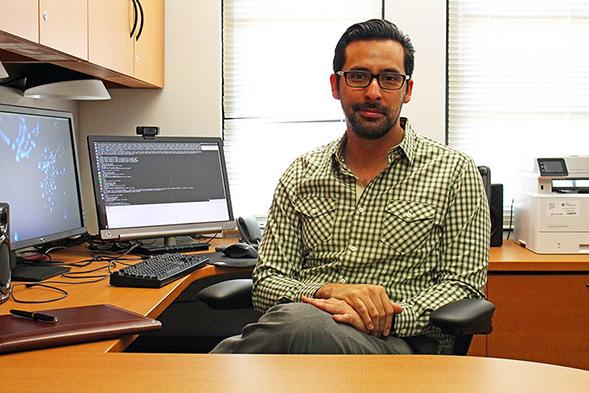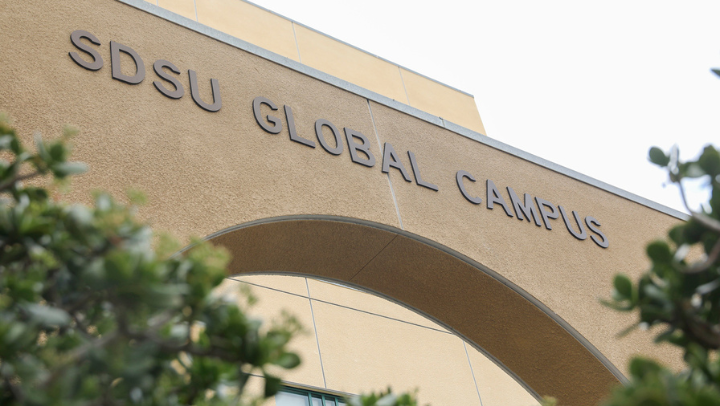Leading Artificial Intelligence Researcher Joins SDSU Faculty
Aaron Elkins returns to SDSU as a professor in the management information systems department.

“What makes MIS special is that it is people, process and technology,” Elkins said. “It is a technology applied to problems, and then people using that technology and all the phenomena that exists within them.”
Elkins said he has always had a fascination with computers but did not quite know what he wanted to do until he found MIS.
He was brought to London Imperial College as a postdoctoral research fellow to further analyze behavioral research, adding a new psychological component to technology and artificial intelligence (AI).
“My research looks at how computers can tell when people lie, how they can tell when people are feeling a certain way based on their voice or eyes or behaviors,” Elkins said.
Bruce Reinig is SDSU’s MIS department chair and a professor who had a significant impact on Elkins.
“(Elkins) Brings many talents to our faculty," Reinig said. "He is a leading researcher in the area of artificial intelligence and affective computing, and specializes in building systems that combine physiological and behavioral sensors to predict emotion."
Elkins is currently working on projects that involve homeland security in airports and border crossings around the globe. In his spare time, Elkins also works on automobile technology screening projects for the Singapore government and customs declarations for Canada.
Here at SDSU, Elkins continues to get more involved in cyber security projects and other homeland security projects.
Elkins is excited to kick off the semester by expanding various research opportunities and collaborations with other universities. Students within the MIS department will also have use of a new laboratory sponsored by the U.S. Department of Homeland Security.
He said experimental research and protocols will be run thoughout this new laboratory. His main lab focus will be on computer detection for lying combined with sensors for smuggling detection.
Elkins is teaching two classes this semester for students within the Master of Business Administration and Master of Science in Information Systems programs. The courses are big data infrastructures, which involves massive amounts of data and machine learning, and information systems and strategies in organizations, which helps people within business understand the relationship between business strategies and information systems.
“Aaron teaches our big data infrastructures course which is a key component of our Master of Science in Information Systems degree program and is very popular with our students,” Reinig said. “We are delighted to have him return to our department as a new faculty member.”
Dedicated and curious, Elkins said he is looking forward to getting his research laboratory off the ground and getting students involved with various research and science opportunities.
“I am always trying to do high-impact research, things that help change the world,” Elkins said.
This article originally appeared in The Daily Aztec.



